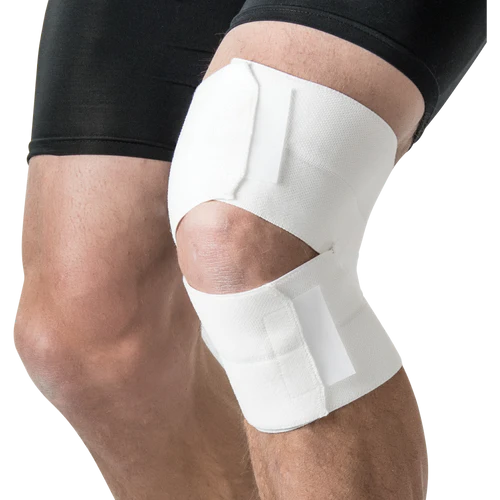

8 Ways to Avoid Common Knee Problems
Knee injuries are common among elite athletes and the average person alike. Because the knee is a complex body part that’s involved in so many movements, it’s vulnerable to many types of injuries ranging from mild to severe. By taking care of your body and knees you can protect yourself against common knee afflictions and pain.
Here are eight ways to avoid common knee problems.
- Maintain a Healthy Weight
Every pound of weight you carry puts approximately four pounds of pressure on your knees. If you’re overweight or obese, you may be putting too much wear and tear on your knees, which can lead to knee pain or osteoarthritis.
If you’re already overweight, every pound you lose will dramatically reduce the pressure put on your knees. If you’re currently at a healthy weight, maintain it through diet and exercise to reduce your chances of developing knee problems.
- Maintain a Consistent Exercise Routine
Regular exercise does more than just help you maintain a healthy weight - it can prevent knee injuries and pain in other ways. Exercise that builds your leg muscles will strengthen the areas surrounding the knee, helping to guard against injury. Maintaining a consistent exercise routine will also help prevent your knees and muscles from weakening.
- Perform Low Impact Exercise
Low impact exercises such as rowing or swimming offer strong workout benefits but don’t put a lot of stress on your knees. If you’re worried about injuring yourself as you exercise or the long-term effects of high-impact exercise, choose a low-impact activity.
- Stretch and Warm Up
Don’t forget to stretch and warm up when you work out! A lack of stretching and warm up exercises can cause muscle injuries, torn ligaments, and other knee problems. Even if you’re not an active person, stretching can be beneficial for the knees.
- Wear Knee Pads
Direct trauma or overuse of the knee can lead to bursitis: an inflammation of the bursa, a fluid-filled sac located by your knee joint. Bursitis symptoms include pain and limited mobility. It’s common in runners and people that frequently kneel during sports or at their job. If this describes you, consider wearing knee pads to lessen the stress on your knees.
- Wear Supportive Shoes
Comfortable and supportive shoes help remove pressure from the knee joint by supporting proper balance and alignment. As much as you can, wear properly fitted, comfortable, and supportive shoes. High heels are best reserved for special occasions and should be avoided as an everyday accessory.
- Wear Knee Wraps
Knee wraps provide light support to your knee without restricting movement, making them ideal for maintaining activity while reducing the odds of suffering an injury. Knee wraps are perfect for people who lead an active lifestyle who are prone to mild injuries, knee pain, or weakness in the knees.
- Rest Your Knees (& See Your Doctor) When Needed
When it comes to knee pain or injuries, playing through the pain is not always the best approach. Knee injuries should be rested and given time to heal before you jump back into your regular activity - otherwise, a temporary condition could turn into a chronic one. Whether you have a temporary knee injury or a recurring one, see your doctor to determine the best method of treatment.
Sources:
https://www.healthline.com/health/osteoarthritis/knee-pain/link-between-weight-loss-and-knee-pain
https://www.rush.edu/health-wellness/discover-health/preventing-knee-pain
https://share.upmc.com/2015/04/build-strength-and-stability-to-prevent-knee-injuries/
https://www.webmd.com/pain-management/knee-pain/knee-pain-causes#3
https://well.blogs.nytimes.com/2014/03/19/how-a-warm-up-routine-can-save-your-knees/
Mentioned Products



